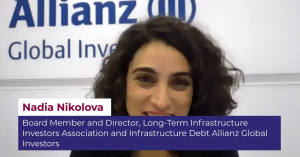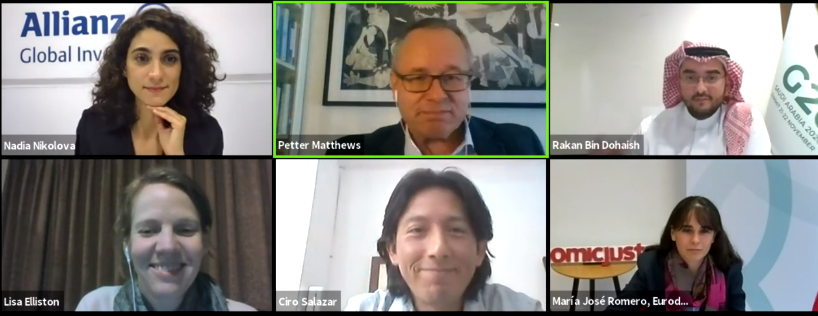In an era of crisis and uncertainty, a resounding takeaway from CoST and Eurodad’s joint session at the C20 Global Summit was the need for more quality, sustainable infrastructure. Faced with the realities of climate change, economic recession and ongoing damage caused by Covid-19, it is vital that our schools, hospitals and transport links serve society’s needs and stimulate growth. Less clear is how these projects will be funded.
Financing infrastructure in an era of crisis brought together leading voices in infrastructure from the G20 and C20 working groups, investors and civil society. Chaired by CoST Executive Director Petter Matthews, the event provided compelling insight – and contrasting viewpoints – into the strengths and weaknesses of the G20’s current focus of establishing ”infrastructure as an asset class”.
Private investment: an innovative approach or leap into the dark?
The G20’s position on this is clear. As Rakan bin Dohaish, Policy Lead at the Saudi G20 Infrastructure Working Group reiterated, there is a significant lack of private sector investment in infrastructure. The G20 see this as an opportunity to work towards more innovative financing models with private and public actors working together to meet the US $15 trillion infrastructure financing gap, by establishing ‘’infrastructure as an asset class’’. Rakan stressed that this approach is particularly necessary in developing economies where capacity for governments to borrow is already stretched.
However, the C20 has voiced concerns over relying too heavily on private investment for public infrastructure. Eurodad’s María José Romero reiterated these concerns, arguing that infrastructure projects are inherently risky and unlikely to yield the high-returns that investors need. This risk increases in emerging economies, implying that an emphasis on private funding could be redundant in the contexts where it is most needed. DAR’s Cero Salazar also reiterated the need for greater community consultation when it comes to public-private partnerships (PPPs). In Peru, a lack of consultation has meant that despite having a world renowned PPP framework, the basics have been forgotten along the way – communities are often excluded from the planning process, meaning projects can often not respond to their needs.
Investors stress need for more transparency
From an investor’s perspective, Nadia Nikolova of Allianz Global Investors pinpointed a lack of human capital and incentives as the main impediment to private sector  investment, especially in emerging economies. Nadia also highlighted a need for multilateral development banks (MDBs) to play a role in increasing transparency by releasing the Global Emerging Markets (GEMs) Risk Database, which is currently only accessible by MDBs, to a broader set of users. This would allow investors a more thorough understanding of – and therefore confidence in – potential new markets.
investment, especially in emerging economies. Nadia also highlighted a need for multilateral development banks (MDBs) to play a role in increasing transparency by releasing the Global Emerging Markets (GEMs) Risk Database, which is currently only accessible by MDBs, to a broader set of users. This would allow investors a more thorough understanding of – and therefore confidence in – potential new markets.
While participants converged on how the infrastructure funding gap will be closed, a resounding takeaway from the session was the major role that infrastructure can play in both aiding recovery and preparing us for crises in the future.
